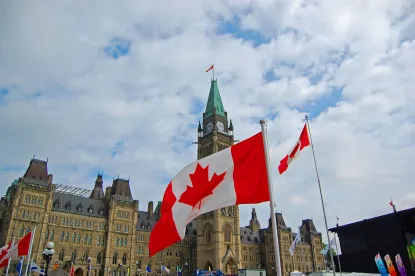A collision between the Ontario government and unionized education workers escalated into one of the most significant moments in recent Canadian labour relations history.
On November 7, 2022, amidst continuing job action by the Canadian Union of Public Employees (CUPE), Ontario Premier Doug Ford announced that he would seek to repeal Bill 28 (the Keeping Students in Class Act, 2022), a measure that had prohibited education workers from striking and imposed a new collective agreement.
The offer to repeal Bill 28 was done in exchange for CUPE’s agreeing to cease its strike action and have staff return to schools to resume in-person learning. On November 14, 2022, the Ontario government repealed Bill 28. Nevertheless, on November 16, 2022, following an impasse in negotiations over school staffing levels, CUPE filed notice of a potential province-wide strike set for November 21, 2022.
Background
After a breakdown in collective bargaining negotiations between the Ontario government and CUPE, which represents 55,000 education support workers across the province (including educational assistants, early childhood educators, and janitors, among others), the union was poised to go on strike.
The strike would have closed schools. But on the heels of shutdowns caused by COVID-19, the Ontario government was determined to keep schools open.
In an effort to prevent school closures, Bill 28 was enacted to make CUPE’s strike action illegal. It imposed a new collective agreement that required educational support staff to return to work under terms and conditions of employment prescribed by the government.
Notably, Bill 28 invoked section 33 of the Canadian Charter of Rights and Freedoms, to allow the act to operate notwithstanding the fact that by imposing a collective agreement it set aside the constitutional rights of the education workers to engage in collective bargaining.
Bill 28 also insulated itself from challenges under Ontario’s Human Rights Code and restricted the Ontario Labour Relations Board from several forms of review. It imposed heavy fines on any individual who engaged in a strike (up to $4,000 per day) and on any union that permitted a strike (up to $500,000 per day).
CUPE stated that its members would not attend work, regardless of Bill 28 or the fines it could impose. Other trade unions—from all industries and from both the private and public sectors—lined up in support of CUPE.
After two days of closures and talks of a general strike in the Province of Ontario, the government backed down, agreed to repeal Bill 28, and went back to the bargaining table to hammer out a deal.
With the agreement to de-escalate, CUPE members went back to work and schools reopened, signaling a potential end to an otherwise dramatic sequence of events. Negotiations over a collective agreement ensued, with the government offering a 15.2 percent raise totaling $335 million over four years. The government, however, did not meet CUPE’s demand for guarantees of higher staffing levels for educational assistants, librarians, custodians, secretaries, and early childhood educators, and on November 16, 2022, CUPE filed a five-day strike notice. The strike action could begin on November 21, 2022. Contract talks will resume on November 19, 2022.
Aftermath and Potential Consequences
From a broader perspective, the past few days could serve as a bellwether of future collective bargaining negotiations. The repeal of Bill 28—widely seen as a victory by CUPE—and the Ontario government’s capitulation in response to the labour strike could potentially embolden unions in negotiations moving forward. Disparate unions and members of the public rapidly coalesced in opposition to the Ontario government and Bill 28. Moving forward, inter-union and coordinated public support for labour campaigns could become more common. Rapid mobilization of strikes and the eliciting of public support are now much easier to achieve in the era of instant communication and social media.
Bill 28 evoked a visceral reaction from CUPE, and other labour unions soon followed in their condemnation of the measure. Many unions, including the Ontario Public Service Employees Union, protested in solidarity. Some unions, such as Unifor and the British Columbia Teachers’ Federation, even went so far as to send contributions from their reserve funds in support ($100,000 and $1 million, respectively) and to offer assistance with regard to paying any potential fines. There were wider popular discussions and suggestions by CUPE of a “general strike,” whereby other unions and nonunionized employees would withdraw their services.
As inflation continues to rise, collective bargaining negotiations may intensify. Unions often seek what is known as a “COLA,” or a cost-of-living adjustment, which follows the Consumer Price Index. Indeed, among the most contentious points between the Ontario government and CUPE during their negotiations was the amount of year-over-year pay increases. CUPE had sought 11.7 percent, whereas the Ontario government had offered approximately 2 percent (with 1.5 percent to 2.5 percent within the collective agreement created by Bill 28, depending on an employee’s pay rate). CUPE had cited rising inflation and a lack of meaningful increases in previous collective agreements for their proposal, while the Ontario government had cited budgetary concerns.
Additional factors could also contribute to more contentious labor relations. With Canada said to be entering into potential recession territory, the threat of layoffs could bring new emphasis on job-security provisions. High job vacancy rates and low unemployment may also lend unions a relatively advantageous position at the bargaining table. Another emerging trend is union demands for the integration of remote work-related provisions into collective agreements, a potential lasting legacy from the COVID-19 era of work.




 />i
/>i

